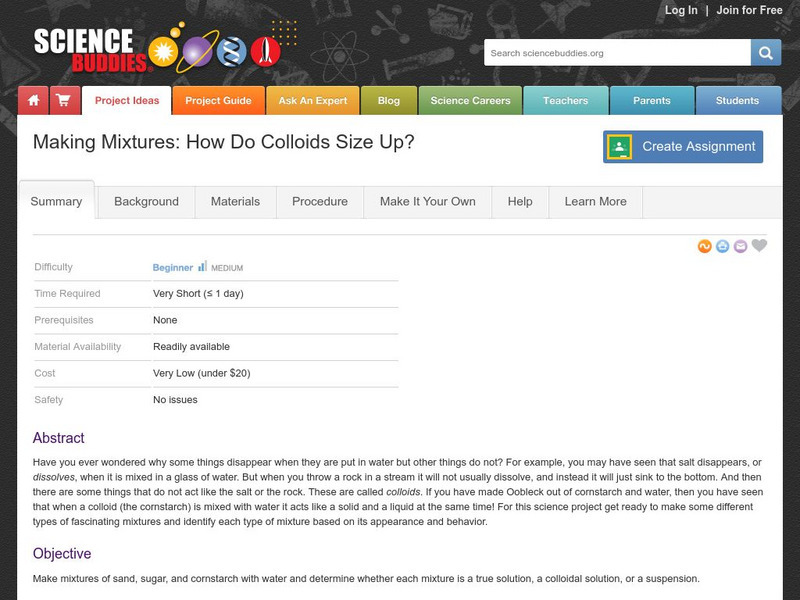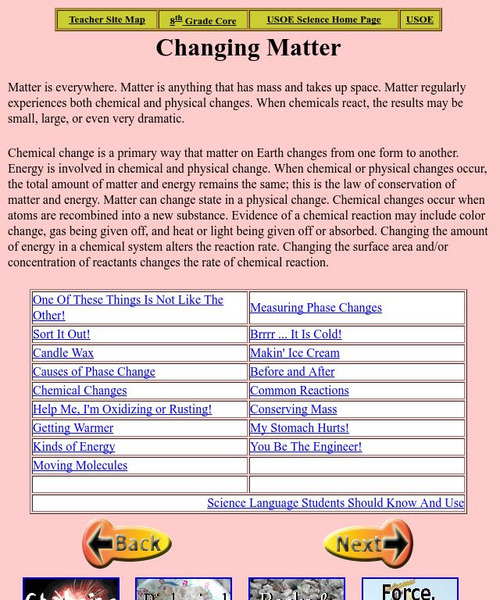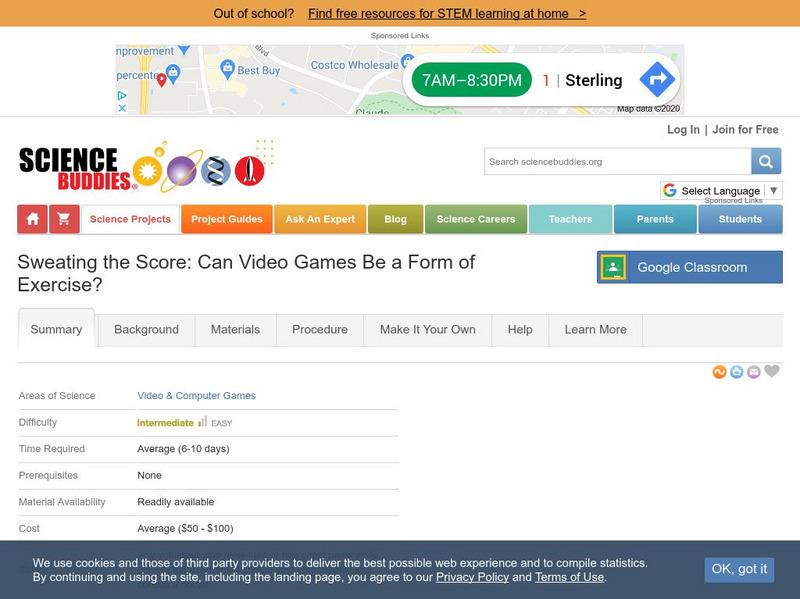Hi, what do you want to do?
Curated OER
Desert Postcards
Students research characteristics of deserts. They present their findings in small groups to the class. Students utilize information learned about desert biomes, geography of the route of the Niger, and expeditions in their writing.
Curated OER
Emphasizing Scale When Creating a Site-Specific Work of Art
Pupils study art by Matthew Ritchie. Students view pictures of the artist and discuss art that is created specifically for a designated area. Pupils create pen and ink drawings on letter size paper. Using an overhead, students enlarge...
Curated OER
Simple Everyday Products
Fourth graders investigate the origin of products and how they are manufactured from natural resources. They draw the production cycle and discuss how one could help reduce the number of natural resources that are used. They also...
Curated OER
Addendum to the Written Curriculum: Measuring Solids
Students use standard rulers to measure the length of common classroom items - such as pencils, books, desk tops - in inches and centimeters, and measure weight in pounds. They also answer math questions, such as "How long is the front...
Science Buddies
Science Buddies: Centripetal Force
What keeps you in your seat of a giant loop-de-loop roller coaster? Surprisingly, it is not the seatbelt but the seat. It works because of something called centripetal force and it does much more than make a great roller coaster. In this...
Science Buddies
Science Buddies: Getting Critical Over Colloids
What is a colloid? If you have made Oobleck out of corn starch and water, then you know that a colloid is a mixture that acts like a solid and a liquid at the same time. This activity helps you determine the critical factors that...
Utah State Office of Education
Utah Science: Changing Matter
Matter changes both physically and chemically on a fairly regular basis. Through these activities students will challenge their understanding of the changes that may take place with different types of matter.
University of Canterbury
University of Canterbury: Cs Unplugged: Community Activities
A collection of hands-on, physically-active lessons for students ages five to twelve revolving around various computer science concepts.
American Chemical Society
American Chemical Society: Science for Kids: Chemical and Physical Change
Engaging hands-on science lessons for grades 2-6 on chemical and physical changes.
Science Buddies
Science Buddies: A Day in the Life of Your Heart
Heart rates can be determined by the amount of physical activity your body is engaging in. The more physically active you are, the faster your heart beats. You can measure the rate your heart is beating by taking your pulse. This science...
Science Buddies
Science Buddies: Sweating the Score: Can Video Games Be a Form of Exercise?
The majority of video games are sedentary, meaning done in one position, but there is an increasing trend toward video games where the players are physically active. Whether or not these type of video games can be considered exercise is...
Science Buddies
Science Buddies:brain Body Connection: Can Exercise Make Our Brains Work Better?
We all know physical exercise is important to keeping our bodies fit. But how important is physical exercise to your brain? In other words, is there any connection between an active body and increased brain power? This is an easy project...
BBC
Bbc Schools: Ks2 Bitesize: Science: Materials: Changes in Materials
Help solve the mystery and find the missing crystal. Following the activity, read more about chemical and physical changes, and then take a quick quiz to check for understanding.
Science Buddies
Science Buddies: Investigate Alien Genetics
In this activity, you will use an alien model to demonstrate how genes or physical traits are passed on from parents to their offspring.
Center of Science and Industry
Cosi Columbus: A Swell Activity With Beans [Pdf]
Learn about absorption in this hands-on science experiment. Includes full list of materials, procedures, and scientific explanation of what happens to different types of beans as they soak in water in a test vial.
Other
Funology: The Science of Having Fun
See what the "science of having fun" is by learning jokes and "wacky facts", playing games, and trying magic tricks and simple recipes. Great ideas for enjoying science with classmates, friends, and family.


















